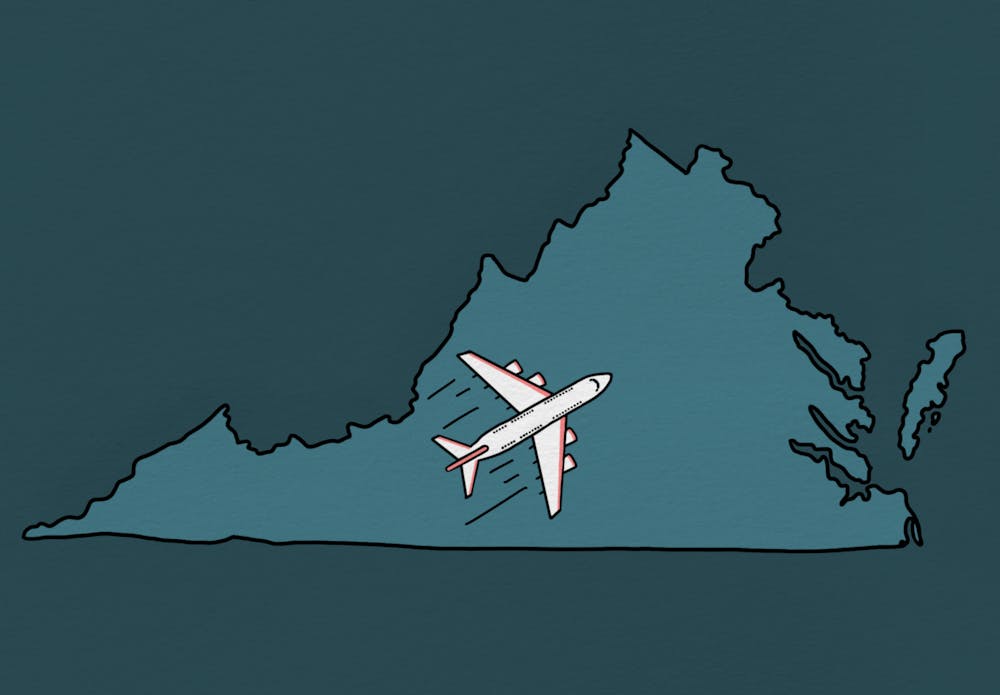Studying abroad is your chance to apply years spent learning a language — or working all the way up to level two on Duolingo — to real life. U.Va. has always been proud of its renowned study abroad programs. U.Va.’s International Studies Office crafts these programs to immerse students in some of the most diverse environments of their lives — surrounded by a group of like-minded U.Va. students at all times. ISO emphasizes that participants will meet people from all walks of life and have the opportunity to interact with them in another language, and that students will instead, of course, choose to speak English with the group of peers on their flight. ISO advertises that it will offer you the chance to immerse yourself in another culture — and students will ponder this fact as they hide away in a foreign Starbucks watching YouTube.
Despite the extraordinary success of U.Va.’s study abroad programs, ISO feels that these programs can be made even better. On Wednesday, U.Va.’s ISO released a statement outlining significant changes to its study abroad programs. The new system will replace all existing study abroad programs beginning in January 2024. Here is a summary of the most notable changes.
1. More Greek Life Representation
In the spirit of diversity, U.Va.’s ISO took a hard look at the students signing up for study abroad programs. Faculty members were reportedly “shocked and horrified” to learn that only 90 percent of study abroad participants in 2023 were members of fraternities or sororities. “This is unacceptable,” commented Carrie Ohn, a self-proclaimed representative of ISO. “We must demand greater representation of Greek Life in our study abroad programs.”
This is not ISO’s first attempt to increase Greek Life representation in study abroad programs. For example, U.Va. recently opened study abroad programs in Greece. “That happened because of a misunderstanding,” said Ohn. “We wanted more Greek Life. Not more Greece.”
One of these programs demands that students meet rigorous requirements, such as the ability to “stand on a moving yacht,” Ohn explained. “Sure, we had students enroll who were quite talented at standing on our yachts. I was impressed when they did not fall over. But when you see fraternity or sorority members standing on a yacht, you know you’re witnessing unparalleled, world-changing talent. We need more of that.”
Members of fraternities and sororities are energized by ISO’s commitment to increasing Greek Life representation abroad. “Representation is essential,” explained a member of Alpha Ligma. “When I posted pics from a crazy night out in Rome, I got so many DMs from fellow frat bros saying that I inspired them to sign up for study abroad. It feels good to make a difference.”
“No taxation without representation! We must ensure that each of us is given an opportunity to thrive,” commented a member of that one frat that was kicked off Grounds for hazing.
ISO has committed to increasing Greek Life representation in study abroad programs to 99.9 percent by 2030. “With hard work and corruption, anything is possible,” noted the official press release.
2. More English
One of ISO’s main goals is to fully immerse students in a language. To better understand barriers to language immersion in study abroad programs, ISO issued a post-program survey to all students. ISO’s statement emphasized that 75 percent of students selected “strongly agree” in their post-program survey when asked if they felt “frustrated that they had to hear a different language.” To accommodate the needs of students, ISO has implemented a new rule mandating that students and host families communicate in English at all times. In fact, students can pay a small fee of $500 to have their host family rigorously trained to ensure their fluency in English.
One alumnus of the U.Va. in Valencia program opened up about their personal experience — “Sometimes, I would be like, ‘What did you just say?’ It just got to a point where life was…hard. And that felt…bad.”
3. Closer to Home
The final significant change is to move study abroad programs closer to home. In 2023, 86 percent of U.Va. students participating in study abroad programs complained that “the flight was too long” and they “got bored.”
“My phone died two hours in. What did they expect me to do next — read a book? Very funny,” said one student scarred by their six-hour flight.
One student recalled a chilling experience from their flight. “As I peered over the Grand Canyon during my flight, I thought about how I had entered a metaphorical canyon in my life. No wifi connection. No power outlet. I had hit rock bottom. I slammed the plane window closed in frustration and inhaled a bag of pretzels.”
Students like this will certainly appreciate the fact that in January 2024, U.Va. will be relocating all study abroad programs to be within a 20-mile radius of Grounds. “We strive to make the flight less arduous for our students,” explained an ISO faculty member.
As we turn the page to 2024, take advantage of U.Va.’s revamped study abroad programs. With more Greek life representation, more English and less distance, the updated U.Va. study abroad experience is more fratty, less fulfilling and — most importantly — less educational. All in all, it is more like home.







